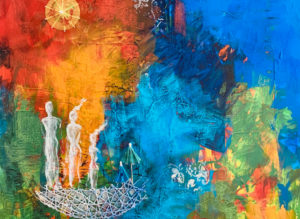How Judaism Shaped Comedian Rose Kelso’s Career
Explore the comedic universe of Rose Kelso, from viral TikTok triumphs to Comedy Central
Published Mar 15, 2023

In an engaging conversation with Danielle Brody, comedian Rose Kelso explores her comedic evolution. From her childhood’s musical endeavors to TikTok to writing/directing for Comedy Central, Rose’s story unfolds like a comedy script.
Rose reflects on the profound influence her Jewish background has had on her comedic narrative, offering a glimpse into the complexities of identity that have shaped her perspectives.
Danielle Brody: How did you get into comedy? How did that lead you to where you are now as a writer/director at Comedy Central and content creator?
Rose Kelso: It’s been my whole life. I was always really drawn to it, that’s just how my brain worked from the time I was a little kid. As I got older I thought, “I could make this a career. This is what I want to do.”
When I was little, I was a really intense violin player. And then I didn’t love violin, so I went to piano. I would write these little silly songs, and I loved performing them. And then eventually, I took a film class elective in high school. All these different aspects kind of came together and culminated in college. And I was like, “Oh, I can do it all!” I did a bunch of improv and musical improv classes at UCB and Magnet.
My come-up was pretty recent because it was the pandemic. When 2020 happened, I was living at my mom’s house. Having that space and just being with my mom alone and very focused allowed me to write this series called “Boomer Stoop” and then really focus on musical comedy in general.
I had gotten this job at Comedy Central in January 2020 as an Associate Producer at first, which was not a creative role, outside of prop designing once in a while. By March, the pandemic hit, and my department was desperate for content. I just sent a bunch of my writing, and I was like, “Put this on the feeds!” And that’s kind of how it turned into something professional.
By 2021, I started my own TikTok. At that time I had become a writer for Comedy Central, but TikTok always felt so separate in 2021 I started putting out videos and they were blowing up and getting attention. I was like, ‘Oh this could be my thing.’
I performed for the first time in September 2021. That was the first time I did anything live. I did my first ten minutes a year ago.
I’m so grateful that people like what I do. But it definitely feels like my boots get bigger and then I have to grow into them.
Brody: What’s your Jewish background and how did it shape you?
Kelso: Being Jewish is the backbone of my work. Because it’s kind of been the throughline in my life that’s always been really confusing for me and caused many an identity crisis.
I was born and raised in Eastern Long Island. There were not a lot of Jewish kids in my school. I didn’t have a Jewish community that I grew up around. It felt very isolating in a way.
That was always a huge identifier for me, that I was a Jewish person in my community. It was all I was seen as. So that was very confusing.
I’m incredibly proud to be Jewish and I love being Jewish, and that goes back to my parents. I was raised with a really, really strong Jewish identity. My mom is Jewish. It was imperative for my mom to kind of infuse us with that and understand why being Jewish is something that you need to cherish.
My dad was raised Irish Catholic. Even though my dad didn’t convert, he saw how Judaism worked and the values that are inherent in Judaism and was like, “Oh my god, that’s what I want my kids to be raised as.” The biggest thing for him was he saw how it was really encouraged to question things in Judaism.
I have more Jewish friends now than ever before. It’s funny because my Jewish friends just connect on this really different level. I’m like, these are my siblings and cousins. We have the same anxieties, we’re on the same SSRIs.
Brody: How does Judaism come through in your work, even when it isn’t about Jewish topics?
Kelso: Naturally, it comes through because it’s how I think and it’s how I was raised, and I think that’s what Jewish performers share. I think maybe the mix of darkness in my work is what people see, and they’re like, “Oh, she’s Jewish.”
My content, it’s my life. It’s all the pain and suffering of figuring out how to be a human, especially in your 20s. It’s that and the world around me, how I view it. That’s how most of my standup comes to be and my songs come to be. And my characters come from that, too.
I think Jews would identify with the songs that I write about the experiences I have because they’re inherently Jewish. There’s an episode of “Boomer Stoop” called, “A Song About Therapy.” Literally one of the lines is “Trauma: Everyone’s got, it’s the constant in life that’s only second to death.” I feel like that’s the most Jewish thing I’ve ever said.
Yeah, we’re laughing, but we’re laughing about this crazy, scary thing that we all have to deal with.
The comedians I’m drawn to, like Gene Wilder and Better Midler, do that well. All of that, “Ah, well, we could die at any moment!” That kind of thing.
I feel like my bubbe, my Jewish grandmother, is a huge inspiration for all this because she’s so wise and dark and complex. I’m also inspired by my own contradictory background of growing up Jewish in an evangelical area.
Brody: Why do you think your viral video “European Boys” resonated with people?
Kelso: That was based on a true story. I hooked up with a Dutch law student who was here to study abroad. After we finished, it just crossed my mind. I was like, “What were your grandparents doing during the war in World War 2?” I just said it. Like, I have to know.
He said that his grandma got the medal of honor in 1944, and that sat with me. Did his grandma get a medal of honor for exposing where the Franks were hiding? That was what I was thinking.
So that’s what kicked me into writing this song. I also had a trend of dating European men. With those European families, a lot of the time they’ve lived in their country so long they can date back centuries. So I’ve been thinking about it for a while.
I think it took off because it’s niche —- that’s not something that everyone thinks about, but it exposes me. I’m a Jewish person and this is something I’m thinking about from my lens of the world.
The song is nicknamed “Retribution” because it’s a consensual retribution. Jews were so afraid for their lives in the 40s being hunted by these people and betrayed by their neighbors. Now it’s nice to think that times have changed enough that this Dutchman would want me to BDSM him. And I’m like, “Well that’s kind of nice because it’s your grandparents’ biggest fear, isn’t it?”
It’s so nice to be a part of a culture that likes a dirty joke once in a while. Jews can take it. You can do these risque things and people get it…mostly. That feels really nice to be a part of. Doing the song and having its success, the highlight of it all was I was reminded how special this community is.
You can find Rose Kelso’s work on TikTok, Instagram, and on Comedy Central. She frequently performs at Caveat on the Lower East Side.
Danielle Brody is a Jewish writer, marketer, and artist living in New York City.
Reflections
Did you group in a Jewish community? How did your community shape who you are today?
How does being Jewish come through in your everyday life?
What are the juxtapositions in your life, and how do you talk about them?
Want more?
Get curated JewishArts.org content in your inbox


